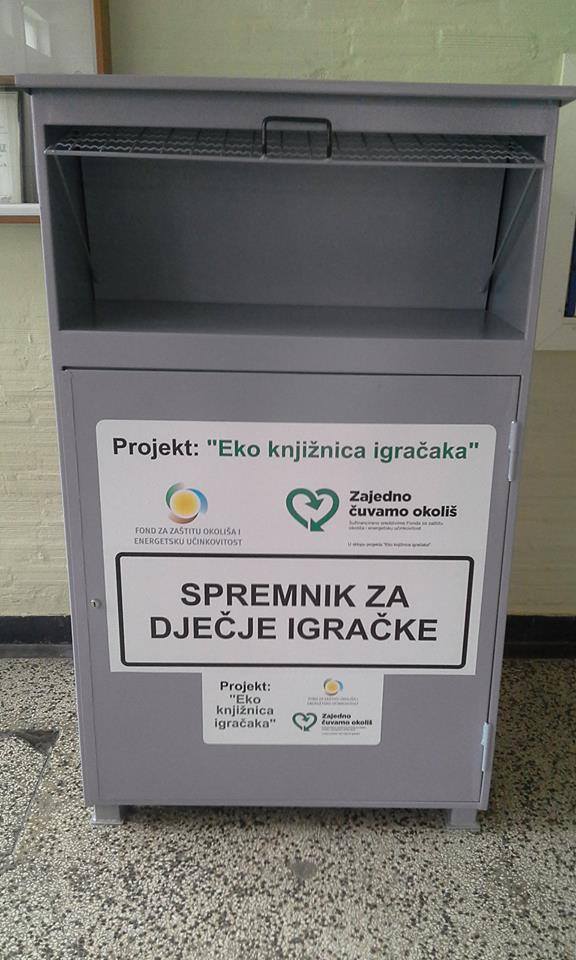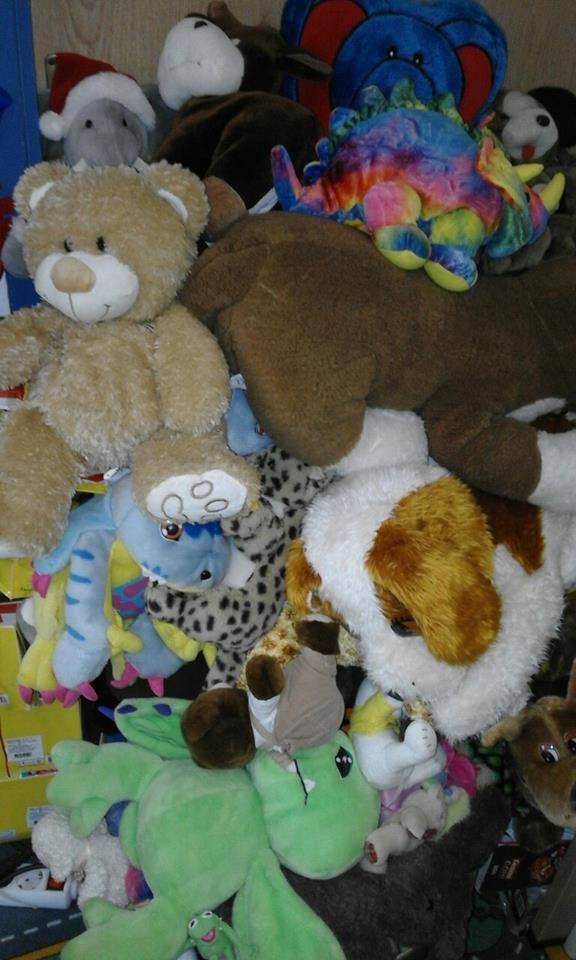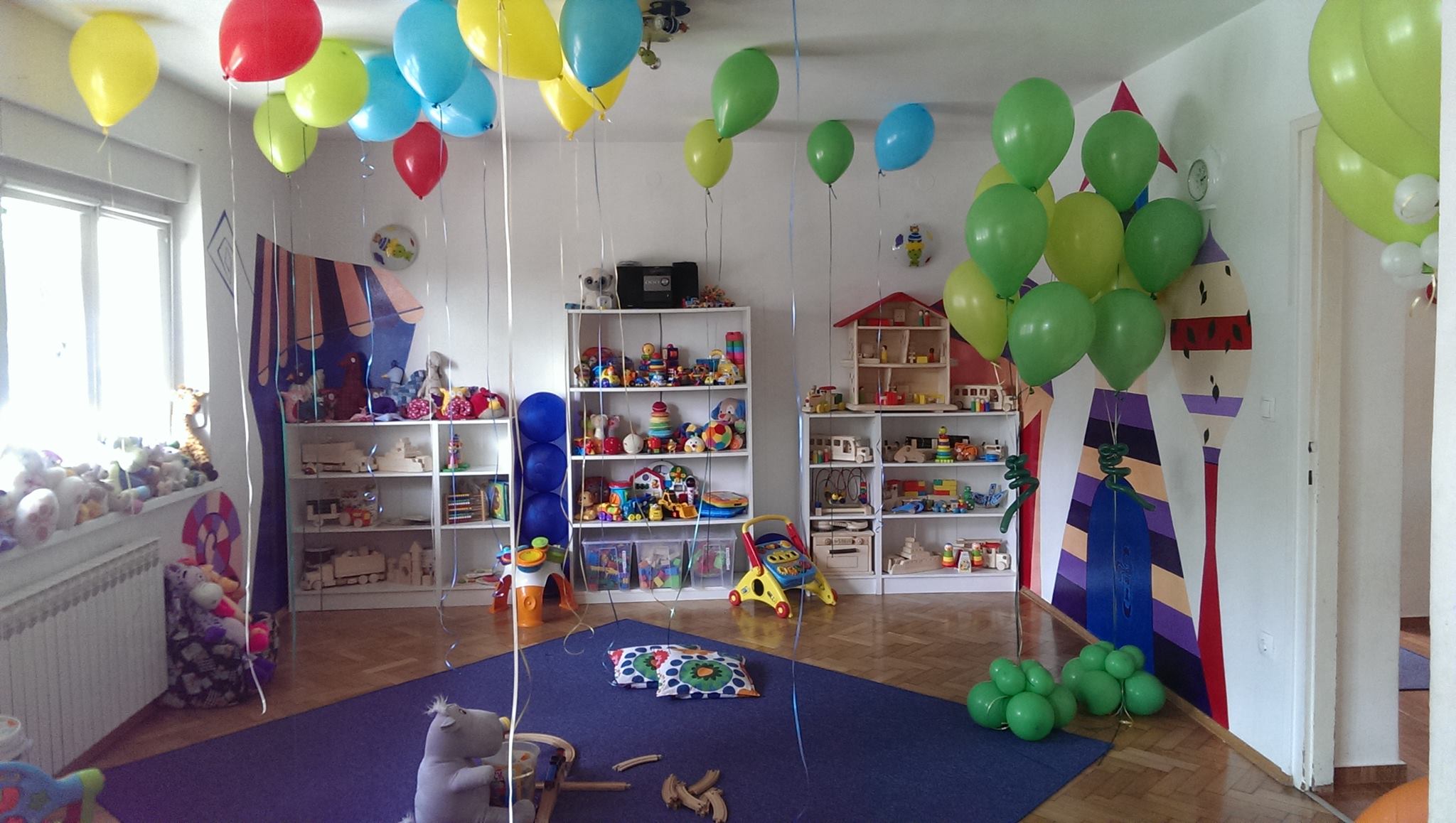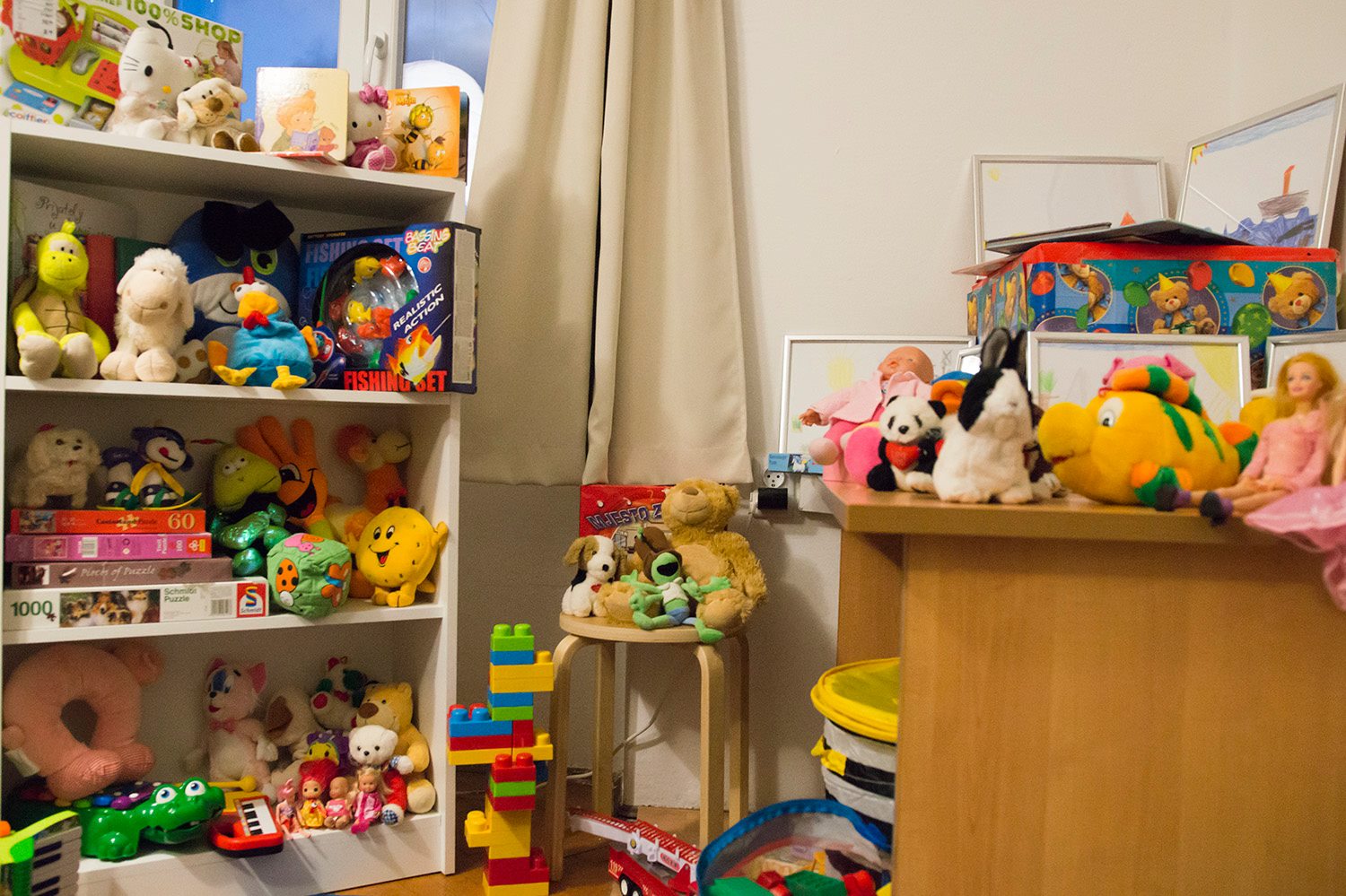The Eco toy Library
Brief project description: What is it about and what is particularly socially innovative?
The Eco Toy Library is informal and operates on a voluntary basis, providing free membership to children who can make a donation and come borrow toys with their parents. The first one to open in Croatia was in Knin, afterwards reaching 7 cities. It helps parents save on buying toys and raises children’s awareness of the importance of sharing, preserving the environment and sustainable waste management by encouraging reuse and creating additional content. End user approach and project realization are innovative. With the support of institutions, associations, volunteers and the media, it’s expanding to organized collection and distribution of toys, books and more.
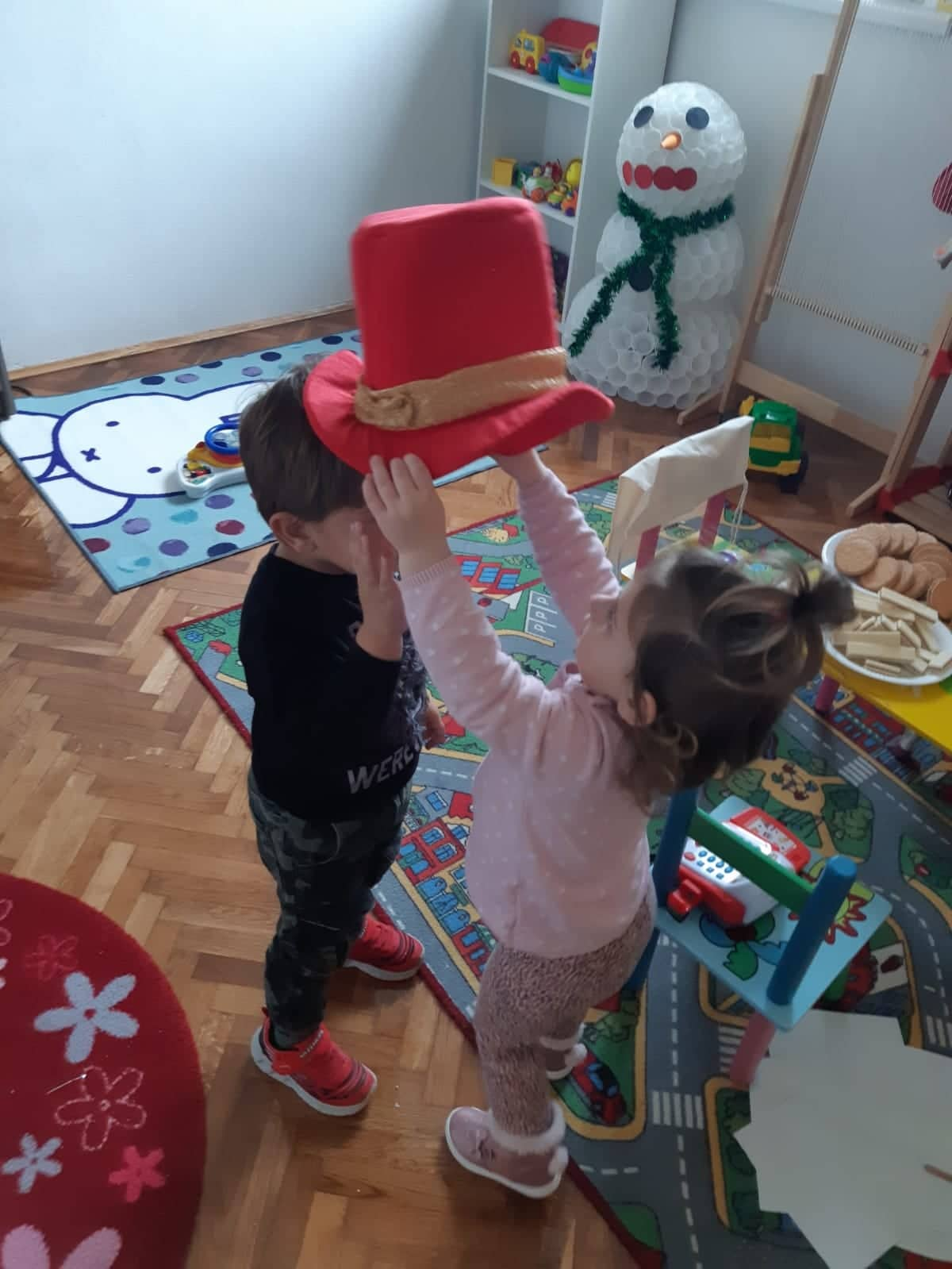 To which challenge(s) does the project respond?
To which challenge(s) does the project respond?
The project helps resolve environmental, economic and social issues. Environmental: by raising awareness of children and parents regarding the reuse of objects, it contributes to sustainable waste management and recycling. Economic: it relieves and empowers parents financially, since membership is free and they can borrow toys and books regularly. Social: it reduces the gap between poor children because they can borrow desired toys and other things; it encourages volunteering, donations, humanitarianism and equality. Especially in these times of pandemic, when many people have limited funds and freedom of movement and socializing. The project encourages networking among cities and associations and exchange of experiences, which contributes to strengthening the community and society as a whole. It brings institutions and public policies closer to the citizens.
What is the project idea to solve this problem?
The gist is that cities and towns set up places for: 1. Collecting surplus toys, books and other necessities; 2. Free exchange, donations, education, socializing. It’s designed on a voluntary basis, relying on participation of individuals, schools, kindergartens, local governments and self-governments (by donating, encouraging, promoting, co-financing, providing space for the Eco Library and public areas for containers in which citizens themselves put surplus things). The project is continuously being promoted and propagated to other cities that want to participate through social networks, websites and media, In 7 cities, the amount of waste has been reduced, parents have saved money, children got new toys and the cities themselves got additional facilities, promoting sustainable economy and waste management, humanitarianism, equality and philanthropy.
Since when does the project exist? How and where is the project implemented? What is planned for the future?
The project has been implemented in 2014 with the opening of the first Eco Library in Knin. It was soon acknowledged and supported by local institutions and other cities, leading to the opening of 7 Eco Libraries: in Šibenik, Promina (Krka Knin), Karlovac (Eko Pan Association), Zagreb (Zeleni dan Association), Vela Luka (Novi otok Association), Sesvetski Kraljevec (Java Association and Educational-Entertainment Center for Happiness Workshops). One of the successfully achieved objectives is acknowledging the project and opening Eco Libraries throughout the Republic of Croatia. The Ecological Association "Krka" Knin is continuously, within its means, working on the promotion of the project. It provides every form of support to interested associations, cities and municipalities that intend to open Eco Libraries. The number of library members is increasing, as well as the placing of Eco Book Houses and toy containers in the municipality and beyond.
What results has the project achieved so far? What difficulties has it had to overcome?
Environmental awareness of thousands of children and parents has been raised. A myriad of citizens have made donations and reduced waste on landfills; numerous associations, educational institutions, city, municipal and county administrations and utility companies have become involved; this saved parents money and cheered up many children. Huge quantities of toys didn’t end up on landfills, but were instead repaired and sent to libraries. We donate surplus toys to institutions that work with children who are victims of natural disasters (earthquakes, floods). Difficulties: organization of working hours (because everything is on a voluntary basis) and finding more adequate spaces closer to the city center for better accessibility. The project is funded through donations, often insufficient for all activities, so most of it is up to the members of the association.
How is the project financed?
The Eco Library was opened with the help of donations, mostly from citizens, and thanks to volunteer work of members and employees of the Association. In 2014, the Eco Toy Library project received the National Foundation for Civil Society Development I = d2a award for the best social innovation of the year, along with financial aid amounting to HRK 20,000.00. In 2016/2017, EPEEF granted co-financing of the project in the amount of HRK 80,000.00. In the same year, the library in Šibenik got EUR 6,000.00 for the opening within the re-granting scheme LADDER. In 2018, the City of Knin and Šibenik-Knin County were approved for small grants in the amount of HRK 5,000.00 respectively. In 2020, HRK 8,000.00 was provided for the implementation of the project (HRK 3,000.00 for the City of Šibenik and HRK 5,000.00 for the Šibenik-Knin County). In 2021, everything was on a voluntary basis. All services are free for library members.
How is the project work organised?
Since its founding in 2004, The Ecological Association "Krka" Knin (with the aim of preserving and protecting the environment and sustainable development) operates in Croatia with an emphasis on the Šibenik-Knin County. It has been acknowledged throughout the Republic of Croatia and as the Association continuously implements national and European projects, it has a well-developed and extensive network of exchange and cooperation with all relevant institutions and CSOs. It receives professional assistance as a member of the coordination of the Green Forum and the Green Phone Network of the Republic of Croatia. The association is an important advisor, stakeholder and partner to all county local governments that regularly and gladly acknowledge, monitor and support numerous projects. So is the case with the Eco Toy Library. Reach was achieved and organized by successful cooperation, networking and communication between volunteers and employees of the Association.
Novelty: What is the innovation in the project idea?
The Eco Toy Library of the Ecological Association Krka Knin is the FIRST of its kind in Croatia. It has an innovative approach to the solution of the global issue of the consumer society, consumerism, pollution, negative individualism versus fellowship and solidarity; it reduces stratification, as well as economic deprivation of certain groups. This inventive educational approach is directed at the youngest members of the community. Through the focus of fun and play, accompanied by a sense of comfort and joy, children acquire positive habits that they happily hone throughout their lives. They shall be happy to apply these patterns in other areas related to socially responsible behavior, sustainable economy, empathy, saving, ecology and humanitarianism.
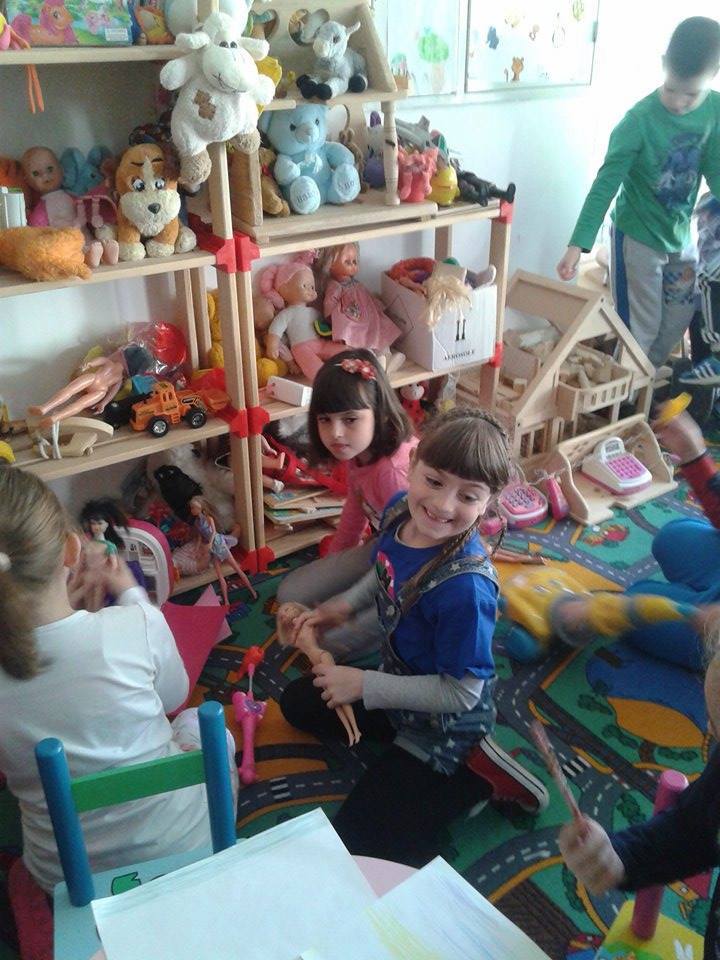 Involvement: What is innovative in the access to the target group?
Involvement: What is innovative in the access to the target group?
The idea and approach to children are cutting-edge: 1. By voluntary membership, the child decides for itself on his own needs and desires, and learns self-control and restraint. Anyone can become a member by donating 1 toy, which is not necessary if they aren’t in possession of one (the act of donating affects the child’s psychosocial development and sharing awareness, leading to a sense of gain and joy. It becomes aware that it no longer needs something and gives it to others because it will benefit from that as well). 2. The number of items to borrow is reduced to 3 toys which are due in 30 days (which develops awareness of limited resources and makes the child review and control its needs and surpluses) 3. By sharing instead of dispensing or buying, it learns to recycle, reuse and reduce consumption at an early age, realizing that due to people’s generosity no one will be at a lack of anything.
Impact: What is the innovation in the implementation?
The manner of propagating and getting approval for the Eco Library throughout the Republic of Croatia is also innovative. The project is distributed free of charge to all interested parties, along with advice, help and organization of the implementation. The innovative supply mode is based on the premise that the library will be as rich or poor in toys as its members are willing to give and invest in it. It is an innovative way of teaching and raising environmental awareness of children, who learn to share, give, save and recycle primarily based on self-interest. It is an innovative way of development because since the opening of the Eco Toy Library, the idea has disseminated to placing Eco Houses in public areas – for the sake of free exchange of books/picture books and toys. (Which the Ecological Association Krka Knin, due to lack of resources, realizes through other similar projects) https://arhiva.h-alter.org/vijesti/u-kninu-ne-bacaju-igracke
Example effect: What is the innovation in public perception?
The Eco Library Project, due to its primarily ecological and educational function, but also due to volunteering and free membership – is met exclusively with positive reactions; there’s simply no place for criticism and complaints. In addition to thousands of members of the Eco Library throughout the Republic of Croatia, other citizens with adult children are also involved in the project, whether by donating toys or providing support on social networks and sharing information. Even irresponsible citizens are slowly becoming aware of the fact that until not so long ago they threw toys in the trash and now they store them in containers intended for that very purpose, which are located in Knin and Šibenik. It also affects utility companies and local governments that support it with donations, providing public areas for containers and spaces for Eco Libraries.
